Table of Contents |
guest 2025-12-27 |
Registration
Instructor List
Course Schedule
2018 UW Course
Thanks!
The fifth annual Targeted Proteomics Course at the University of Washington, held July 30- August 3, 2018, is officially wrapped up and in the books. With an engaged and inquisitive group of participants and great instructors resulted in an exceptional week of focus on the methods and approaches of targeted mass spectrometry.
Instructors also reported great interaction with this group -- great questions coming from the very onset -- and in hearing about the innovative ways that targeted proteomics and small molecule research was being approached.
With another lovely week of weather in Seattle, we've settled on July as "our month" to host this course in the future. Continue to watch the Join Us section of the Skyline homepage for announcement information about this and other future targeted proteomics courses and workshops coming up!
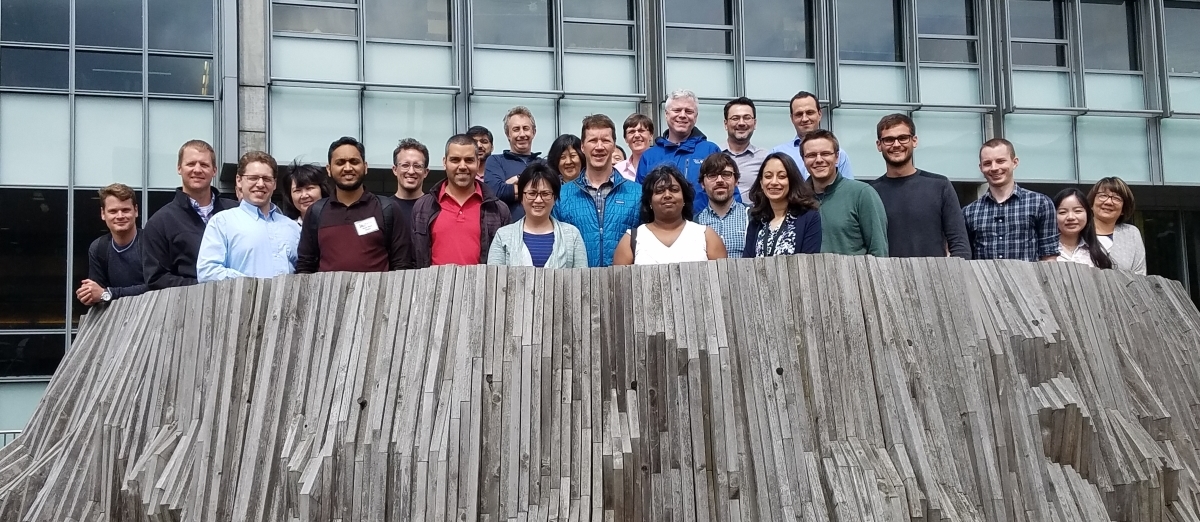 |
Registration

Dear Skyline Users,
The Skyline Team and our invited instructors are pleased to announce the fifth University of Washington Targeted Proteomics Course on July 30 - August 3, 2018 in Seattle, WA. The course schedule will address a range of targeted techniques using SRM, PRM, data independent acquisition (DIA/SWATH) and MS1 filtering, and topics like system suitability, plasma proteomics, statistical methods for designing and analyzing these experiments and, of course, learning to use Skyline software more effectively in your research. NEW! This year targeting small molecules.
The instructor list includes researchers and software developers with a wealth of combined experience in targeted and quantitative proteomics, and both using and creating Skyline to meet the needs of this research approach.
Space is limited. However, all applications submitted by the deadline of April 18, 2018 will be considered equally on the merits of the application.
Don't miss this opportunity. Over 99% of all 780+ participants worldwide have said they would recommend a weeklong course in targeted proteomics to their peers.
We hope you will join us.
Brendan MacLean,
Skyline Project Lead
[registration closed]
When: July 30 - August 3, 2018
Where: Foege Building, University of Washington, Seattle
(Meet at 9am Monday between Foege South and North) (map)
Cost: $400 academic, $900 industry
Apply by: April 18, 2018
Pay by: May 23, 2018
Participants: 30
Room & Board: Not included.
Related Links:
Course Schedule
Instructor List
Instructor List
The following instructors and speakers have agreed to contribute their expertise to the success of UW Course:
 |
Michael J. MacCoss, Ph.D. Mike became interested in biomedical applications of mass spectrometry while working in Dr. Patrick Griffin’s protein mass spectrometry lab at Merck Research Laboratories. He obtained a Ph.D. with Professor Dwight Matthews and pursued a postdoc with Professor John R. Yates III. In 2004 he started the MacCoss lab at the University of Washington and it became obvious that while mass spectrometry data could be collected quickly and robustly, the lack of computational tools for the visualization and analysis of these data was a stumbling block. In 2009 he recruited Brendan MacLean with the goal of developing professional quality software tools for quantitative proteomics. Mike has worked closely with the Skyline development team and our outstanding group of laboratory scientists and collaborators to ensure that our software uses analytical approaches that have been thoroughly vetted by the mass spectrometry community. |
|
 |
Brendan MacLean Brendan worked at Microsoft for 8 years in the 1990s where he was a lead developer and development manager for the Visual C++/Developer Studio Project. Since leaving Microsoft, Brendan has been the Vice President of Engineering for Westside Corporation, Director of Engineering for BEA Systems, Inc., Sr. Software Engineer at the Fred Hutchinson Cancer Research Center, and a founding partner of LakKey Software. In this last position he was one of the key programmers responsible for the Computational Proteomics Analysis System (CPAS), made significant contributions to the development of X!Tandem and the Trans Proteomic Pipeline, and created the LabKey Enterprise Pipeline. Since August, 2008 he has worked as a Sr. Software Engineer within the MacCoss lab and been responsible for all aspects of design, development and support in creating the Skyline Targeted Proteomics Environment and its growing worldwide user community. |
|
 |
Ruedi Aebersold, Ph.D. Ruedi is professor at ETH Zurich. His research has focused on the development of new technologies for quantitative proteomics and on applying them to challenging questions of contemporary life science research. In this area, the group has a worldwide standing and has pioneered a number of concepts and technologies that have transformed proteomics. These include the introduction of relative and absolute proteome quantification, the development of open source computational tools for the objective, statistically supported analysis of large proteomic datasets, the development of a method for the determination of the spatial organization of protein complexes and the development of targeted proteomic techniques such as Selected Reaction Monitoring and SWATH-MS.The concept of targeted proteomics has been selected Method of the Year 2012 by the journal Nature Methods. |
|
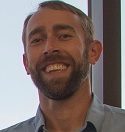 |
Josh Eckels Josh has lead development on proteomics related projects for LabKey Server over the past 10+ years, and he currently oversees Panorama development. He is experienced in security-related projects, client-side end user applications, and server-side development. Prior to joining LabKey, Josh worked most recently on Amazon.com's data warehouse, developing the software that schedules and executes loading and querying of more than 30 terabytes of data. Before that, he was the team lead for the debugger for BEA System's WebLogic Workshop. At LabKey, he focuses on mass spectrometry, other assay types, experimental annotations and general infrastructure. Josh has a BS in Computer Engineering from Northwestern University. |
|
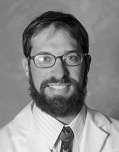 |
Andy Hoofnagle, MD, Ph.D. Andy is an Associate Professor in the Department of Laboratory Medicine at the University of Washington. His laboratory focuses on developing CLIA-certified assays for small molecules using mass spectrometry. They also investigate the function of high density lipoproteins in patients at increased risk for cardiovascular disease and the translation of proteomics technologies into the clinical laboratory. |
|
 |
Lindsay K. Pino
Lindsay is a Ph.D. candidate at the University of Washington’s Department of Genome Sciences in the MacCoss lab. Her research interests include the development of large-scale proteomics assays using data independent acquisition-MS to investigate complex mixtures and applying computational techniques to mine the resulting high-dimensional data. Prior to joining the MacCoss lab, she worked as a research associate at the Broad Institute of MIT and Harvard in Dr. Steve Carr’s Proteomics Platform, where she worked under Dr. Susan Abbatiello to improve the speed and selectivity of targeted proteomics assays using high-field asymmetric waveform ion mobility spectrometry (FAIMS). |
|
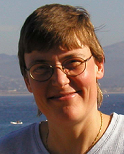 |
Birgit Schilling, Ph.D. Birgit is Research Associate Professor and the Director of the Mass Spectrometry and Chemistry Core at the Buck Institute for Research on Aging in Novato, CA. Research projects include investigations of neurodegenerative diseases, aging, cancer, mitochondrial damage, protein posttranslational modifications including acetylation in bacteria, the role of surface glycoconjugates in bacterial pathogenesis etc., but also mass spectrometric method development. Birgit has worked in the field of protein quantitation to assess differential protein expression or changes in posttranslational modifications, particularly using selected reaction monitoring stable isotope dilution mass spectrometry (SRM-SID-MS), and other chemical and metabolic labeling quantitative workflows, i.e., iTRAQ and SILAC technologies. Birgit has participated in large multi-laboratory SRM verification studies taking advantage of Skyline’s platform independent features. In recent years, she has used more and more label free protein quantitation approaches to investigate discovery mass spectrometric data sets (Skyline MS1 Filtering), as well as newer quantitative workflows, such as high resolution data-independent acquisitions (SWATH and PRM). Birgit has co-developed some algorithms for the Skyline Tool Store and she also extensively uses the interactive data sharing features of the Panorama webserver. |
|
 |
Brian Searle Brian Searle is the co-founder and chairman of the board of Proteome Software, Incorporated. Following an undergraduate degree in chemistry from Reed College, Brian was mentored in MS/MS-based proteomics by Ashley McCormack and software development by Mark Turner in Srinivasa Nagalla’s lab at Oregon Health and Science University. In 2004 Brian co-founded Proteome Software with Mark and Ashley to produce and distribute cutting-edge data analysis software for proteomicists. As the owner of Proteome Software, Brian has produced numerous innovations in the analysis of MS/MS-based proteomics data. Brian is a member of the American Society for Mass Spectrometry (ASMS) and served on the board of directors for that organization. Brian also co-founded the Proteome Informatics Research Group of the Association of Biomolecular Resource Facilities (ABRF) society and is active in ABRF committees. In addition to furthering the goals of Proteome Software, Brian is concurrently pursuing a PhD at University of Washington. |
|
 |
Vagisha Sharma Vagisha got involved with proteomics at UC San Diego where she worked with Prof. Vineet Bafna. During that time she built her first tools for visualizing Mass Spectrometry data while working at ActivX Biosciences. Since moving to Seattle Vagisha has worked on Mass Spectrometry pipelines for the Aebersold group at the Institute for Systems Biology, and developed a data management system while at the University of Washington Proteomics Resource and the Yeast Resource Center. She joined the Skyline team in October 2011 where she has been the lead developer for the Panorama Targeted Proteomics Knowledge Base. |
|
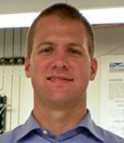 |
J. Will Thompson, Ph.D. Will is the Assistant Director of the Duke Proteomics and Metabolomics Shared Resource, and Assistant Research Professor in the Department of Pharmacology and Cancer Biology. He received his Ph.D. in Ultrahigh Pressure Liquid Chromatography from the laboratory of Dr. Jim Jorgenson at the University of North Carolina at Chapel Hill, and subsequently joined the Disease and Biomarker Proteomics group led by Dr. Arthur Moseley at GlaxoSmithKline. In 2007, Dr. Thompson assisted Dr. Moseley in founding the Duke Proteomics Core Facility, which as of winter 2017 has 10 full time scientists. Dr. Thompson has overseen the expansion of the group's efforts into small molecule and metabolomics analysis, which now represents roughly 40% of the work of the Shared Resource. His research in part focuses on application of novel proteomics and targeted metabolomics assays to clinical and basic science research applications, with special emphasis on Alzheimer's Disease. The Core has completed over 1200 projects for nearly 200 principal investigators since 2007, and works with investigators both inside and outside the Duke School of Medicine. |
|
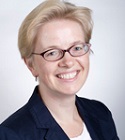 |
Olga Vitek, Ph.D. Olga is a Sy and Laurie Sternberg Associate Professor in the College of Science and the College of Computer and Information Science at Northeastern University. Olga holds a PhD in Statistics from Purdue University. Her group develops statistical methods and algorithms for quantitative proteomics. The methods optimize the experimental design, and ensure accurate and objective interpretation of the resulting large and complex datasets. The tools developed by her group include MSstats, an open-source software for statistical analysis of quantitative shotgun, targeted and data-independent proteomic experiments. |
Course Schedule
Monday: Introduction to targeted quantitative proteomics and Skyline
- Meet at Foege S. (between Foege South and North) at 9am
- Welcome and intro to targeted proteomics and quantitative analysis
- Basics of mass spectrometry for targeted MS
- Intro to Skyline
- Tutorial: SRM method development and refinement
Tuesday: Panorama, parallel reaction monitoring, system suitability and iRT
- PRM method development
- Tutorial: Working with PRM data
- System suitability and quality control
- Tutorial: Using Panorama for publishing data and Auto QC
- Tutorial: SRM libraries and iRT
Wednesday: Standards, calibration, statistics for quantitative experiments and Panorama
- Statistical considerations in study design
- Statistical analysis of proteomics experiments
- Standards for targeted proteomics
- Signal calibration and absolute quantification
- Targeting and quantifying small molecules in Skyline
Thursday: Sample prep, DIA, methods and data analysis
- Sample prep for targeted proteomics
- Introduction data independent acquisition (DIA)
- Tutorial: Analysis of DIA data in Skyline
Friday: Plasma proteomics and the future
- Plasma proteomics - Validation
- Tutorial: Processing grouped study data in Skyline
- Review and test
- Conclusion: The future of targeted proteomics
The course also includes popular morning “Sky-Jam” sessions led by Brendan MacLean with hands-on Skyline processing.
Note: As instructors update their content for this course, this list may change slightly.